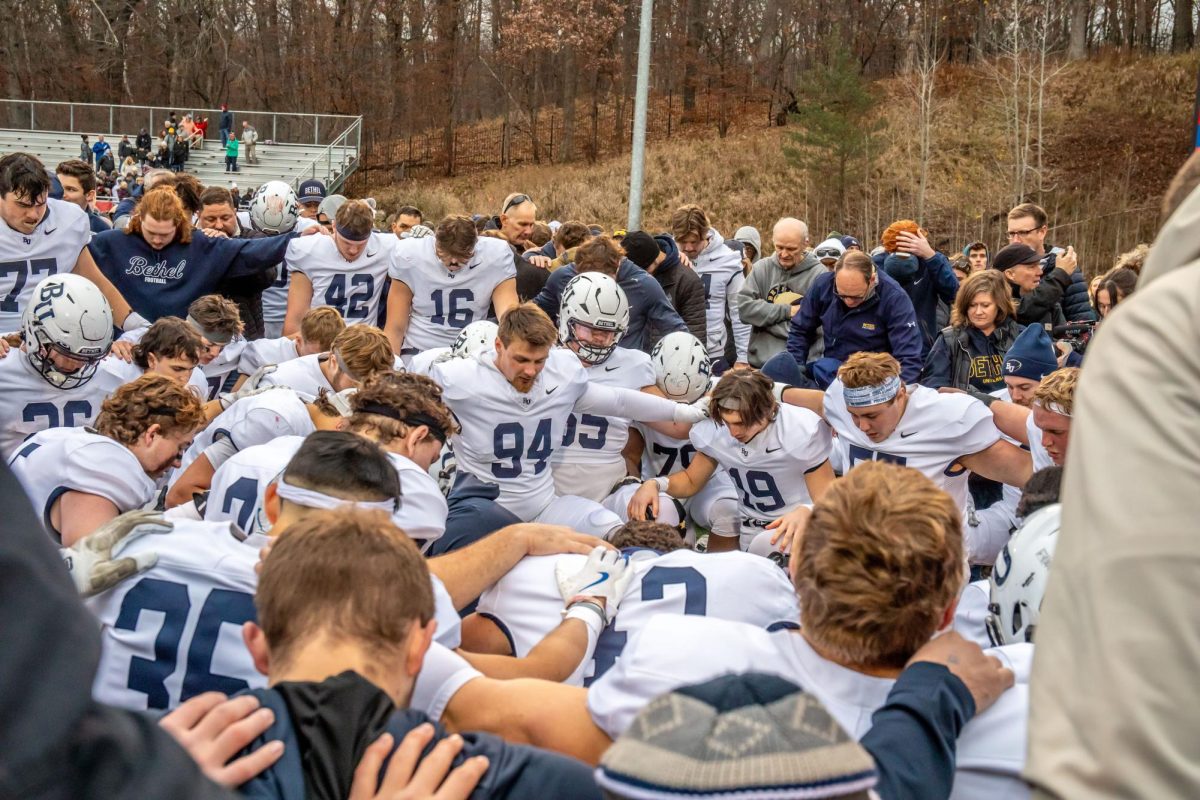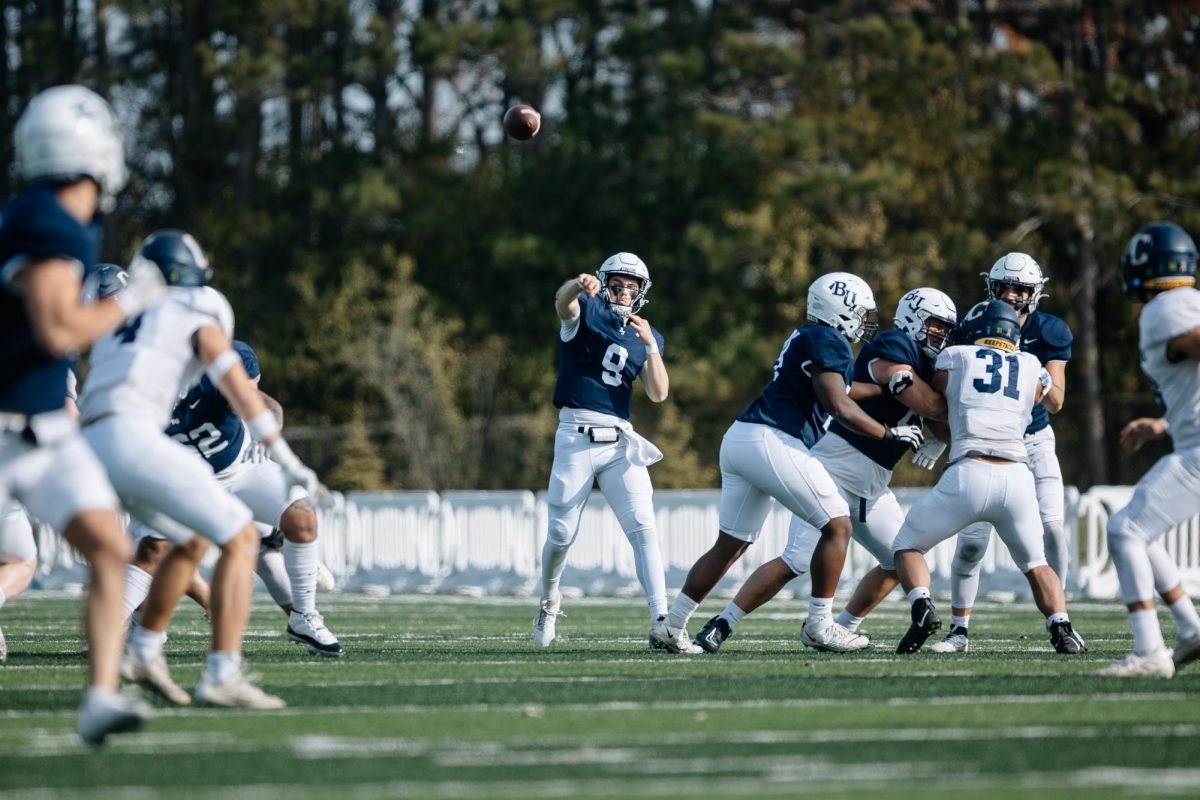It starts with a sore throat. Or with a runny nose. Or maybe you’re more tired than usual. You ask yourself, what could it be? Oh, yes, why of course! The annual Bethel frat flu is making its way around campus — and it knows no sympathy.
As the weather is getting colder and daylight shrinks day by day, cold and flu season is naturally upon us. Getting a cold — or, heaven forbid, the flu — is not ideal for most people, but how are college students meant to balance school work, a social life, practice and worry about staying healthy? Don’t fret, because in this month’s “Advice you didn’t ask for,” I spoke to senior nursing students Andrew Calcutt and Mari Thomas about all things health-related and how students can stay in tip-top shape.
For starters, how can a college student stay healthy?
Calcutt: There’s eating the right foods, exercising, doing something you like, spending time alone. It’s OK to have time to yourself to read a book or play video games. Drink eight to 12 cups of water each day because hydration is a big thing. Try and spend time away from your screen. It’s common to spend tons of hours on your phone or watching TV, but you can get so drained by that, so try and watch how long you’re on a screen — which I fall victim to, too.
Thomas: One thing I love to do at the hospital I work at is setting fun goals with my patients. There’s all these medical things we need to get done, like taking their medicine, making sure they’re up and walking around, going to their appointments and stuff like that, but setting a goal that makes them feel human and happy is really big — the same thing goes for college students. There are things that we need to get done no matter what, like go to class, do our homework, but I think it would be really good if us as college students set ourselves these fun goals for each day. Intentionally choosing each day to do something that reminds us of the good things in life can help us just keep functioning in a busy season.
What about sleep?
Calcutt: What does good sleep look like? What does it mean? It looks like a routine: at the same time every night, eight hours consistently, no screens an hour before bed and don’t eat a big meal before bed. Also, exposure to sunlight during the day can help you sleep better at night because one, it gets you vitamin D and two, it sets your circadian rhythm, which is your natural sleep cycle. Getting fresh air can help you sleep better at night, too.
Thomas: Just go to bed. I fall short of this, too, but a lot of college students end up dipping way under the eight hours of recommended sleep each night. At the end of the day, prioritizing sleep and getting enough sleep is one of the most important things you can do for your health, focusing ability and just being able to function well in relationships.
Do I really need to be eating my vegetables?
Calcutt: I’m not here to make diet choices for you, but making sure you have vegetables in your diet, and fruits, and overall trying to eat three meals a day is helpful. Fruits and vegetables help vitamins fight off things in your body, like a cold.
Thomas: At the end of the day, our bodies are the things that carry us from each thing to thing. So, it sounds stupid, but eating your fruits and veggies can make you feel better. Even if you can’t hit all of the [food] recommendations each day, just trying to have color on your plate can help your body.
How can I try and avoid a cold or flu?
Calcutt: Wash your hands after using the bathroom, before and after you eat — especially if you’re eating finger food. Cleaning surfaces like your desk, dresser and door knobs is good. Again, sleep, because sleep is the most important thing you can do if you [are sick].
Thomas: Biggest thing: get your flu shot. They’re free at a lot of different places. Along with that, wash your hands well, especially before going to eat in the DC. Even just using hand sanitizer works, too, because those germs are everywhere.















